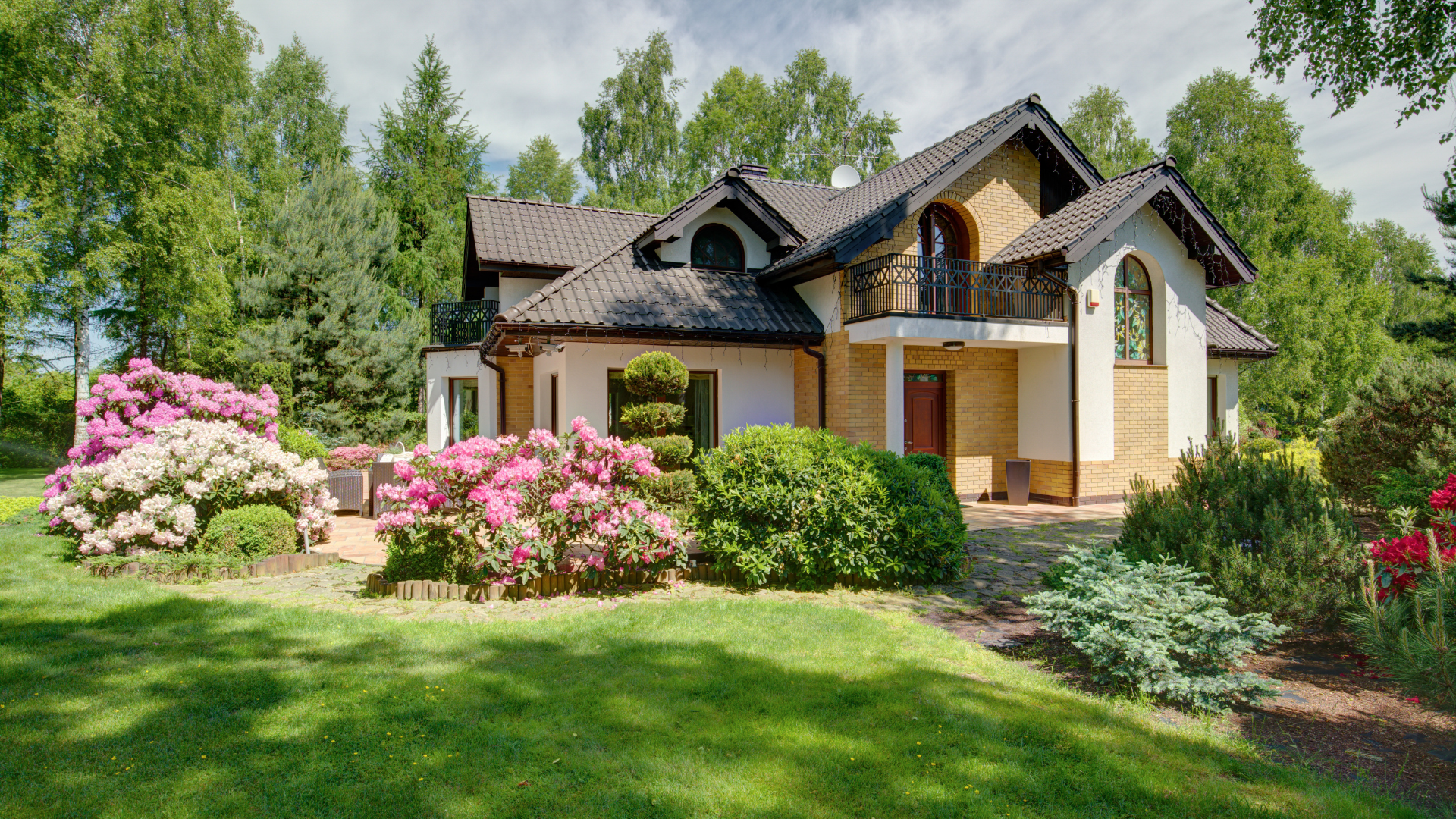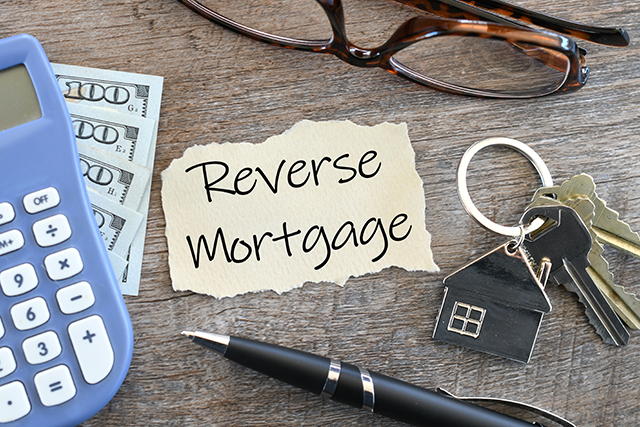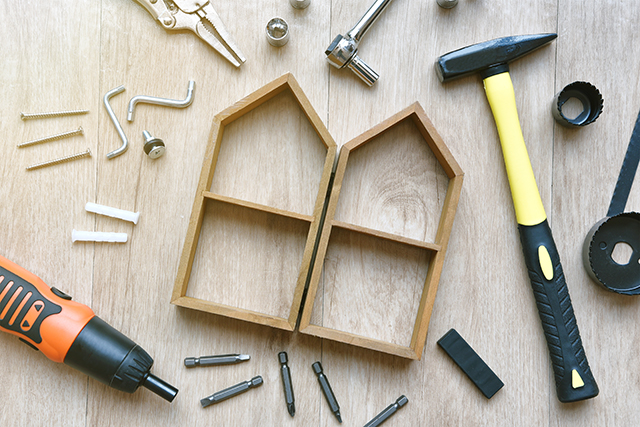
Product Offerings

Conventional Loans
• (Fannie Mae & Freddie Mac) as little as 3% down. Most widely used mortgage loan in America that offer Low Rates with more flexibility. A conventional Loan refers to any loan that is not insured or guaranteed by the federal government, as opposed to government insured loans including FHA, VSA, USDA

Jumbo Mortgage
• A jumbo loan, or non-conforming mortgage, allows you to purchase more expensive homes with a loan amount above the conforming limit set by the Federal Housing Finance Agency. In most areas of the country, the conventional conforming loan limit is $548,250; however, the limit is $822,375 in higher-cost areas. If you have a low debt-to-income (DTI) ratio and a higher credit score, but you don’t have enough funds to bring the loan amount under the conforming limit, a jumbo loan might be the right option for you.

FHA Loans
• Opening the Doors to Homeownership – FHA is most widely used for lower down payments as little as 3.5% down and lower credit score borrowers going down to 500 Fico Credit Scores) Low Down Payments, Flexible Income and Credit Requirements, Loans for 1-4 unit properties, down Payment funds can be a gift from a relative or an employer, home sellers can contribute up to 6% of the closing costs.

VA Loans
• (Veterans) 0% down – 100% financing loans for veterans. VA Loans are backed by the department of Veterans Affairs (VA) and, among other benefits, offer more competitive interest rates, no minimum down payment, and more lenient credit and income requirements. No private mortgage insurance (PMI), 100% financing with full VA entitlement, VA financing fees can be rolled into the loan amount.

USDA
• Offers 100% financing options for properties located in designated small towns, suburbs and exurbs. This program helps eligible low-to moderate-income families achieve homeownership by offering a no down payment option. Low interest rates, low closing costs, Gift funds can be used for closing costs, 30-year fixed rate mortgage. Eligibility is based on the property size, location and condition along income and other qualifying factors. Property must be located in a USDA designated rural area.

Reverse Mortgage
• For seniors over the age of 60 years or better. A reverse mortgage can be used to turn a portion of the equity in your home into cash that can be used for many different purposes that may enhance and extend your retirement. If you currently have a mortgage, a reverse mortgage could eliminate your mortgage payment for life (taxes and insurance must still be paid, and the home maintained) and allow you to access additional equity (over and above your mortgage balance) to create available cash which is not readily available while in the form of home equity. You have spent years putting your money into your home equity, and now with a reverse mortgage, you may be able to convert some of that equity into tax-free cash.

Non-Prime Loans
• For self-employed borrowers who have difficulty qualifying with the traditional Tax Return or W2 income that most lenders require. Lower credit score borrowers can also take advantage of the Non-Prime Loans. A non-prime mortgage could be considered the “new and improved” version of the old subprime mortgages. There now exists much more responsible underwriting, preventing mortgages being issued to unworthy borrowers. On a positive note, those who would be capable to keep up with their mortgage payments but have been locked out of the market in recent years, are starting to have opportunities to own their own home. I guess you could say non-prime mortgages are the more responsible version of subprime mortgages, which are essentially extinct.

Renovation Loans
• Turn a fixer upper into your dream home. When shopping for a home, you may come across properties that aren’t quite what you’re looking for but have the potential to be your dream home with some repairs or renovations. With a renovation loan, you can roll the cost of financing or refinancing a home and repairs into one loan – saving you time and money.
A. Home Style Renovation Loan
• You can use a Home Style renovation loan to cover costs of repairs, remodels, renovations or energy-efficient improvements on a primary residence, a second home or an investment property. There are no required improvements or restrictions on the types of repairs allowed or a minimum dollar amount for the repairs. However, repairs or improvements must be permanently affixed to the real property, add value to the property, and be completed by a licensed contractor.
B. Limited 203(k) Rehabilitation Mortgage
• In addition to funding your new home, an FHA Limited 203(k) can provide up to $35,000 (including a contingency reserve) in additional funds to help make a few non-structural repairs or renovations such as updating a kitchen or bathroom, adding new flooring, purchasing new appliances, or repairing the roof.
C. Standard 203 (k) Rehabilitation Mortgage
• If your potential dream home needs more than $35,000 in renovations or the repairs are structural, the Standard FHA 203(k) might be the right solution. This program removes the restrictions of the limited option to allow for major home remodeling. A Standard FHA 203(k) can provide additional funds* to help with eligible repairs including moving or removing walls, minor pool repairs, and landscaping.
Final disbursement of funds is subject to final inspection.

Construction Loans
• A home construction loan is a short-term, higher-interest loan that provides the funds required to build a residential property. “These loans are usually one year in duration during which time the property must be built, and a certificate of occupancy issued.

1-Time Close – Construction to Permanent Loans
• Instead of doing two separate Loans, 1st being for construction of house with costs and fees associated with construction loan, there would be only 1 closing and 1 loan that will be your permanent take out loan and you can lock in a fixed rate Now for the future when your home will actually be fully build and ready for occupancy. Unlike traditional loans that make a lump-sum payment, the lender pays out the money in stages as work on the new home building progresses. Borrowers are typically only obligated to repay interest on any funds drawn to date until construction is completed. In order to obtain construction loan financing the borrower will need to have a builders contract including the draw schedule of how the builder expects construction funds to be advanced, a comprehensive budget outlining the cost or allocation for each construction item, and the timeframe in which the project is to be completed.
Product Offerings

Conventional Loans
• (Fannie Mae & Freddie Mac) as little as 3% down. Most widely used mortgage loan in America that offer Low Rates with more flexibility. A conventional Loan refers to any loan that is not insured or guaranteed by the federal government, as opposed to government insured loans including FHA, VA, USDA
Jumbo Mortgage
• A jumbo loan, or non-conforming mortgage, allows you to purchase more expensive homes with a loan amount above the conforming limit set by the Federal Housing Finance Agency. In most areas of the country, the conventional conforming loan limit is $802,650; however, the limit is $1,203,975 in higher-cost areas. If you have a low debt-to-income (DTI) ratio and a higher credit score, but you don’t have enough funds to bring the loan amount under the conforming limit, a jumbo loan might be the right option for you.


FHA Loans
• Opening the Doors to Homeownership – FHA is most widely used for lower down payments as little as 3.5% down and lower credit score borrowers going down to 500 Fico Credit Scores) Low Down Payments, Flexible Income and Credit Requirements, Loans for 1-4 unit properties, down Payment funds can be a gift from a relative or an employer, home sellers can contribute up to 6% of the closing costs.
VA Loans
• (Veterans) 0% down – 100% financing loans for veterans. VA Loans are backed by the department of Veterans Affairs (VA) and, among other benefits, offer more competitive interest rates, no minimum down payment, and more lenient credit and income requirements. No private mortgage insurance (PMI), 100% financing with full VA entitlement, VA financing fees can be rolled into the loan amount.


USDA
• Offers 100% financing options for properties located in designated small towns, suburbs and exurbs. This program helps eligible low-to moderate-income families achieve homeownership by offering a no down payment option. Low interest rates, low closing costs, Gift funds can be used for closing costs, 30-year fixed rate mortgage. Eligibility is based on the property size, location and condition along income and other qualifying factors. Property must be located in a USDA designated rural area.
Reverse Mortgage
• For seniors over the age of 55 years or better. A reverse mortgage can be used to turn a portion of the equity in your home into cash that can be used for many different purposes that may enhance and extend your retirement. If you currently have a mortgage, a reverse mortgage could eliminate your mortgage payment for life (taxes and insurance must still be paid, and the home maintained) and allow you to access additional equity (over and above your mortgage balance) to create available cash which is not readily available while in the form of home equity. You have spent years putting your money into your home equity, and now with a reverse mortgage, you may be able to convert some of that equity into tax-free cash. **62 years old for TX residents.


Non-Prime Loans
• For self-employed borrowers who have difficulty qualifying with the traditional Tax Return or W2 income that most lenders require. Lower credit score borrowers can also take advantage of the Non-Prime Loans. A non-prime mortgage could be considered the “new and improved” version of the old subprime mortgages. There now exists much more responsible underwriting, preventing mortgages being issued to unworthy borrowers. On a positive note, those who would be capable to keep up with their mortgage payments but have been locked out of the market in recent years, are starting to have opportunities to own their own home.
A. Home Style Renovation Loan
• You can use a Home Style renovation loan to cover costs of repairs, remodels, renovations or energy-efficient improvements on a primary residence, a second home or an investment property. There are no required improvements or restrictions on the types of repairs allowed or a minimum dollar amount for the repairs. However, repairs or improvements must be permanently affixed to the real property, add value to the property, and be completed by a licensed contractor.
B. Limited 203(k) Rehabilitation Mortgage
• In addition to funding your new home, an FHA Limited 203(k) can provide up to $35,000 (including a contingency reserve) in additional funds to help make a few non-structural repairs or renovations such as updating a kitchen or bathroom, adding new flooring, purchasing new appliances, or repairing the roof.
C. Standard 203 (k) Rehabilitation Mortgage
• If your potential dream home needs more than $35,000 in renovations or the repairs are structural, the Standard FHA 203(k) might be the right solution. This program removes the restrictions of the limited option to allow for major home remodeling. A Standard FHA 203(k) can provide additional funds* to help with eligible repairs including moving or removing walls, minor pool repairs, and landscaping.
Final disbursement of funds is subject to final inspection.
Renovation Loans
• Turn a fixer upper into your dream home. When shopping for a home, you may come across properties that aren’t quite what you’re looking for but have the potential to be your dream home with some repairs or renovations. With a renovation loan, you can roll the cost of financing or refinancing a home and repairs into one loan – saving you time and money.


Construction Loans
• A home construction loan is a short-term, higher-interest loan that provides the funds required to build a residential property. “These loans are usually one year in duration during which time the property must be built, and a certificate of occupancy issued.
1-Time Close – Construction to Permanent Loans
• Instead of doing two separate Loans, 1st being for construction of house with costs and fees associated with construction loan, there would be only 1 closing and 1 loan that will be your permanent take out loan and you can lock in a fixed rate Now for the future when your home will actually be fully build and ready for occupancy. Unlike traditional loans that make a lump-sum payment, the lender pays out the money in stages as work on the new home building progresses. Borrowers are typically only obligated to repay interest on any funds drawn to date until construction is completed. In order to obtain construction loan financing the borrower will need to have a builders contract including the draw schedule of how the builder expects construction funds to be advanced, a comprehensive budget outlining the cost or allocation for each construction item, and the timeframe in which the project is to be completed.

Ready To Get Started?
Ready To Get Started?

Layton Mortgage is a multi-channel mortgage broker
that offers excellent rates and a diverse array of
mortgage loan products for Purchase, Refinance & Reverse.

CONTACT INFORMATION
Name: Forrest Layton
Title: Broker/Owner
Phone Number: 818-274-9969
Email Address: info@layton-mortgage.com
NMLS License: 457575
972-769-5242 | LAYTON FINANCIAL SERVICES CORP | NMLS # 1922806 DBA: LAYTON MORTGAGE | www.LAYTON-MORTGAGE.COM
972-769-5242 | LAYTON FINANCIAL SERVICES CORP | NMLS # 1922806 DBA: LAYTON MORTGAGE | HTTPS://LAYTON-MORTGAGE.COM | CA Disclosure | TX Disclosure | Privacy Policy